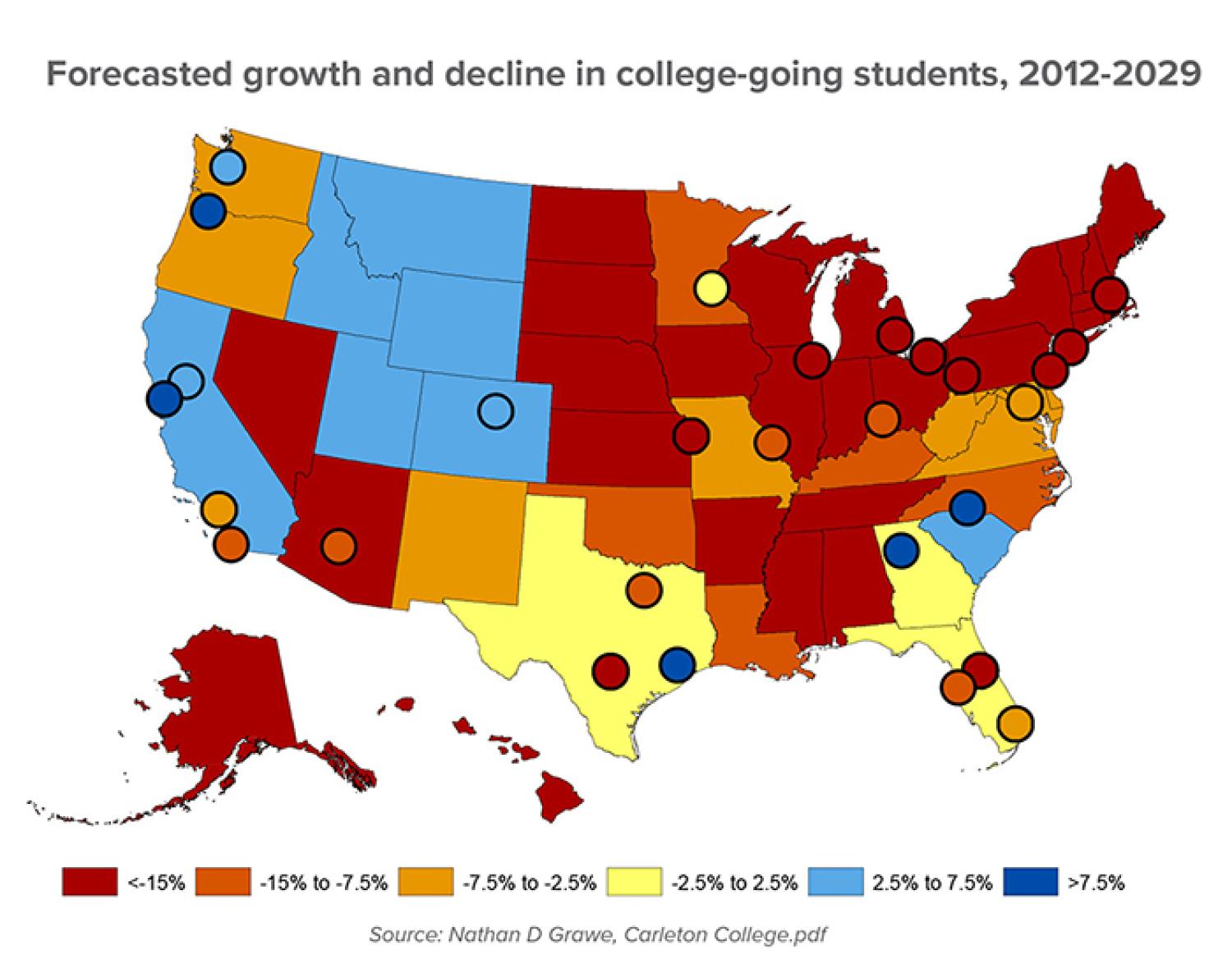Is Walmart Stealing Your Students?

How corporate giants are disrupting higher ed.
A slew of megawatt companies from Starbucks to Chipotle to Disney have joined a growing trend of employers expanding their tuition-assistance benefits to provide low-cost pathways to education for working adults.
Take Walmart. Almost two years ago, the retail giant began offering a debt-free college education to its 1.4 million employees in the form of subsidized online associate’s and bachelor’s degrees. The deal: Walmart covers tuition, books and fees; workers pay $1 a day.
The program, called “Live Better U,” offers its full- and part-time employees access to select degrees from academic partners like the University of Florida and Purdue University--schools specially chosen based on their success in serving the unique needs of working adults.
And last year, Walmart rolled out a program to specifically attract more high school students, a demographic increasingly hard to hire in this tight labor market. The college degree program offers scheduling flexibility, ACT and SAT prep, and up to seven hours of free college credit.
Because of these programs, Walmart has increased its talent pipeline, decreased turnover, seen a 25% month-over-month increase in job applicants and had 1.3 billion positive media impressions. It’s been a win-win: an opportunity for employees to upskill toward higher earnings and more career options, and a strategic talent driver and competitive advantage for Walmart.
As others like Lyft and Discover invest in their workforces, employees are discovering more affordable, alternative pathways toward degrees and credentials—a monumental development in the world of higher education.
The next movement in higher education
It’s no secret that many universities are looking for ways to fill their classrooms; college enrollment in the U.S. declined by 1.3% in 2019. Over the past few years, demographic and economic trends have caused a decline in high school graduates. And six years from now, forecasters predict a “2026 Cliff” in higher education, where enrollment rates will stagnate or plummet for universities across the U.S.
With fewer graduates to pull from, institutions are shifting focus to a market largely overlooked until now: working adults.
In this era of rapidly evolving industries fueled by globalization and technology, it’s become critical for adult workers to continuously update their skills—throughout their entire career—to remain employable. A demand for lifelong learning has arrived.
In response, leading universities are creating innovations in the design and delivery of their degrees to cater to working adults’ needs for accessibility, affordability and flexibility. An example of this is microcredentials like MasterTrack Certificates and MicroMasters, where degrees are broken down into shorter, stackable, modular credentials.
But with growing competition among online programs, colleges are looking for ways to lock down the adult learner market without spending more on recruitment.
Enter the megacorporation.
Win-win partnerships
The universities that are building academic partnerships with employers like Walmart gain access to thousands of adult learners, guaranteed.
- Arizona State University makes online bachelor’s degrees available to Starbucks’ 100,000+ employees, who receive 100% tuition coverage through the Starbucks College Achievement Plan. ASU has also developed similar relationships with Uber and the NBA.
- The University of Arizona, Bellevue University, Brandman University, Southern New Hampshire University and Wilmington University provide 75 different business and technology degrees to Chipotle employees through Chipotle’s Cultivate Education debt-free program.
- Oregon State partners with Peet's Coffee to offer the Peetnik Pathway to College Program, with more than 20 online bachelor's degree programs.
- Purdue University Global partnered with Papa John's recently to deliver tuition-free college to its corporate employees.
As partnerships between employers and colleges grow, traditional higher education won’t be replaced. But new pathways are emerging for individuals who previously had no way to get a college degree. As more employers are willing to pick up the tab, the opportunities for institutions to access new students, save on recruitment costs and stabilize revenue make academic partnerships something to consider.







